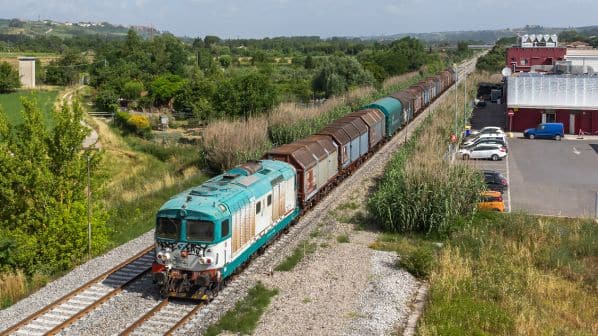THE European Rail Freight Association (Erfa) says that state aid for single wagonload freight traffic must focus on last-mile services and not distort competition with other freight services.
Erfa has set out its position as discussions continue at national and European level on the development of funding mechanisms to support wagonload traffic, which has been loss-making for many years in the face of road competition.
Following consultation last year, the European Commission (EC) is currently revising the 2008 Guidelines on State Aid for Railway Undertakings. Adoption of the revised guidelines is expected at the end of this year.
Areas under consideration during the revision process include avoiding cross-subsidy between commercial activities and those subject to the PSO obligations. The EC is also assessing the need for new rules in areas that are not covered by the current guidelines, and for freight in particular.
Erfa says that financial support for wagonload traffic can play an important role in achieving the modal shift targets set out in the European Union’s (EU) Sustainable and Smart Mobility Strategy, but that any support made as a direct grant to operators has the potential to distort competition.
When aid is granted to wagonload traffic, Erfa says that it is “essential” that the operator in receipt of this funding - “which mostly will be the national incumbent” - must be separated organisationally and financially from other freight services such as trainload traffic. Otherwise, the association argues, competition between incumbents and new entrants in the trainload market could be distorted.
Financial aid should be limited as much as possible and should be targeted where there is a sectoral benefit which incentivises volume growth and potential for modal shift from road to rail.
Any system to provide financial aid should stimulate efficiency and, if needed, facilitate possible cooperation between operators to avoid redundancies. It should definitely not support particularly inefficient operating practices, Erfa says.
The association also believes that direct aid to specific operators should be avoided and any aid mechanism should be non-discriminatory. Definitions of terms used when allocating support, such as sidings or shunting tracks, should not provide an unfair advantage to any particular participant in the freight market.
It adds that the focus of aid should be on supporting the cost of last-mile services, which should be offered on a non-discriminatory basis to all market players.
Erfa says that any future PSOs for wagonload traffic should be established in a non-discriminatory manner “and tendered transparently on a regular basis in order to assure maximum efficiency and neutrality.”
Financial aid for wagonload should not be allowed where it distorts competition with other freight services that are viable without support, such as trainload traffic or long-distance conventional freight.
Erfa says that “an artificial transfer” of traffic moving in trainloads back to subsidised wagonload is not acceptable. To avoid this, the wagonload support mechanism should focus on customer sidings and/or shunting operations at yards forming part of the national network.
Aid should be focused on where it is most needed and of most use to the rail freight sector, “the costly part of the last mile,” and not on long-haul distance flows between marshalling yards.
The focus on the last mile should especially apply to less frequently used sidings where traffic volumes and the frequency of service are low. “That would also lead subsidies not only towards the incumbents but rather to all actors involved in rail freight,” Erfa says.
“State aid must not be used to support unviable business practices or undermine competition,” says Erfa president, Mr Dirk Stahl.
Support for wagonload traffic could be positive for the rail freight, he added, but only where there is a clear understanding of its role in last-mile connections “and conditional on organisational and financial separation of the activities in receipt of financial aid which is enshrined in law.”
“The upcoming revision of the State Aid Guidelines for Railway Undertakings will play an important role in setting the conditions for any aid for specific rail freight operations such as single wagon traffic,” says Erfa secretary general, Mr Conor Feighan.
“It is essential that the revised guidelines clearly limit the scope of any financial aid whilst also establishing safeguards which will protect competition within the rail freight sector.”

